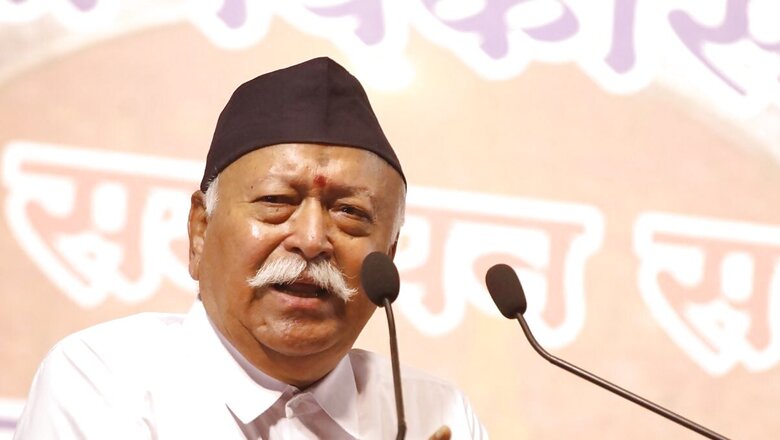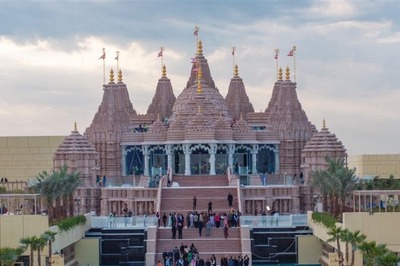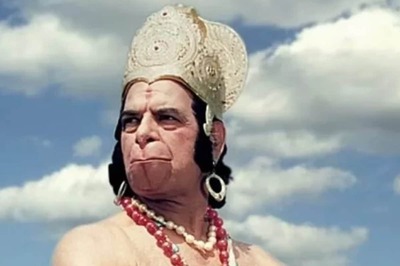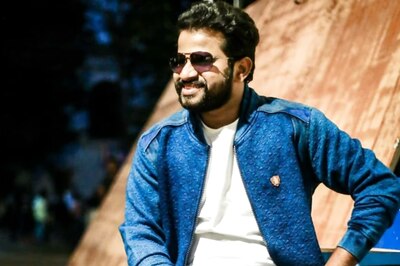
views
While the BJP is claiming that the national elections are a victory, enabling Narendra Modi to become the Prime Minister for a historic third time, and the Opposition is triumphant over its increased numbers and the fact that the BJP could not win a simple majority, a far cry from the clarion call of 400 paar, RSS chief Mohan Bhagwat has finally broken his silence. What he said is of seminal importance, for all political parties, but in particular for the BJP.
Bhagwat speaks rarely, but when he does, he has a purpose. This is because the RSS, as the ideological mentor for the idea of Hindutva, and the alumni for BJP leaders, thinks long-term, beyond the expediency of short-term political gains. Modi’s impressive two-term absolute majorities were, from its point of view, positive. It helped in providing political heft to the RSS ideology. But this does not mean that the RSS will become perennially mute due to the dominance of one BJP leader, even if he is still, by far, the most popular leader in India.
The latest elections have shown that Modi’s appeal is diminishing, and his brand has lost some of its sheen. The shrillness of the Hindu-Muslim narrative has become fatiguing, distasteful and repetitive. Indians do not have a Jihadi mindset. They do not want the endemic instability created by mindless bigotry and hatred.
It is in this context that Bhagwat has spoken. The RSS is aware that for PM Modi, the challenge now is to show the ability to run a coalition government. During his years as the chief minister of Gujarat from 2001 to 2014 and as the prime minister from 2014 to 2024 with an absolute majority, he has not had the opportunity to run a mili-juli sarkar. Instinctively, he is a leader who seeks complete control over the government, a tendency evident in the new cabinet’s portfolio allocation.
The BJP’s strategic dominance across key sectors has been reaffirmed, while allies have largely been accommodated with minor portfolios. Some allies have been excluded entirely, and others are dissatisfied with the number of cabinet positions offered. Nitish Kumar is notorious for his fickle loyalties, and Naidu will see everything from the prism of what is being done for Andhra Pradesh. These are challenges which the coalition will have to negotiate. It is significant too that there is not a single representation in the government, from India’s largest minority, the Muslims, a situation starkly in contrast to the principle of Sabka Saath, Sabka Vishwas.
Mohan Bhagwat’s pointed and relevant message has to be seen in this overall context. He emphasised that we must “respect diversity, live together, and respect others too.” He advised Indians to “embrace goodwill to all”, and work towards consensus (sehmati). In the specific context of religion, he said: “We need to reflect on the teachings of Prophet Mohammad and Jesus Christ. Over time distortions have emerged. We must forget these distortions and treat the sons of our country as brothers.” (Emphasis mine).
Nor did he mince words on some issues the current government has unpardonably ignored. One of these is the continuing violence in Manipur for over a year, despite which the BJP chief minister has been retained, and the PM has not had the time to visit the strife-torn state even once. The RSS chief bluntly said that this is unacceptable, and that a solution must be found in Manipur on a priority basis.
Bhagwat also commented on the ahankaar or ego and arrogance that besets leaders. Of course, this can be interpreted as a generic statement relevant to all leaders, but I think his intended target was clear. In the elections, Modi had become both the sole mascot and the ubiquitous face of the BJP, to the extent that the party was almost ‘invisibilised’. Even the BJP manifesto was called ‘Modi Ki Guarantee’. Many BJP stalwarts were treated shabbily, the cadre appeared to be demoralised, and seat allocations were done—as some allege—at the will of the ‘high command’.
In a particularly telling sentence, therefore, Bhagwat said: “Jo karm karta hai, par karm mein lipt nahin hota, usmein ahankar nahi hota, wahi sevak kehlane ka adhikari hota hai” (Only he who practices karma, but does so selflessly without an ego, deserves to be called a true sevak).
Even on the inauguration of the Ayodhya Ram Mandir, Bhagwat in his speech, without triumphalism, was emphasising the need to carry all Indians along, and shed hatred. He cited a stanza from Tulsidas’s Ramcharitmanas on what are the defining characteristics of Ram Rajya: “Sab nara karahin paraspar priti” (all will have mutual respect for each other).
It is significant that in the latest edition of the RSS publication, Organiser, RSS intellectual Ratan Sharda asks the revealing question: Was it lethargy, overconfidence, or a sense of comfort that “aayega toh Modi hi, abki baar 400+”? Sharda further commented that “the idea that Modiji is fighting on all 543 seats has a limited value. The idea became self-defeating when candidates were changed, imposed at the cost of local leaders, and defectors were given more importance. Sacrificing even well-performing parliamentarians to accommodate latecomers hurt.”
Will the BJP heed the advice of the RSS and its leader Mohan Bhagwat, or dismiss it? And, above all, will the party learn the great legacy of ‘coalition dharma’ bequeathed by one of its tallest leaders, Atal Bihari Vajpayee?
The author is a former diplomat, an author and a politician. Views expressed in the above piece are personal and solely that of the author. They do not necessarily reflect News18’s views.




















Comments
0 comment